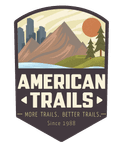Learn how one trail organization has been engaging indigenous communities in the interpretation of trails and public lands to help all visitors connect on a deeper level.
Learn how one trail organization has been engaging indigenous communities in the interpretation of trails and public lands to help all visitors connect on a deeper level. From the inclusion of land acknowledgments and indigenous place names on trailhead signs to involving tribes in trail design, construction, and exploration, this presentation will offer a suite of successful strategies for engaging indigenous people in trail management.
Learning Objectives:
- Ideas for how to engage indigenous communities in your trail project
- Understanding the difference between respectful dialogue and formal consultation
- Deliverables that benefit native and non-native communities alike
- Why removal of offensive place names from maps, signs, and public lexicon is a vital step in cultural reconciliation
Trail Competencies
-
Relevant Trail Types
Learning Credits and CEUs

Learning credits will be available to attendees and are included in the registration fee. The length of the session will determine the number of hours/credits given. In order to obtain credits, attendees must fill out an evaluation survey for each session they attend, as well as complete a learning credit tracking form noting each session they are requesting credits for (or a quiz if virtual). This form (and complete instructions) will be available online as well at registration. Email the conference host or [email protected] with any questions.
American Trails is a certified provider and can offer the following learning credits and continuing education opportunities: AICP CM, LA CES (most HSW approved), NRPA CEU Equivalency Petition, and CEU/PDH Equivalency Petition for other accepting organizations.
You may also like
Related Upcoming Trainings
This training has been viewed 616 times.
